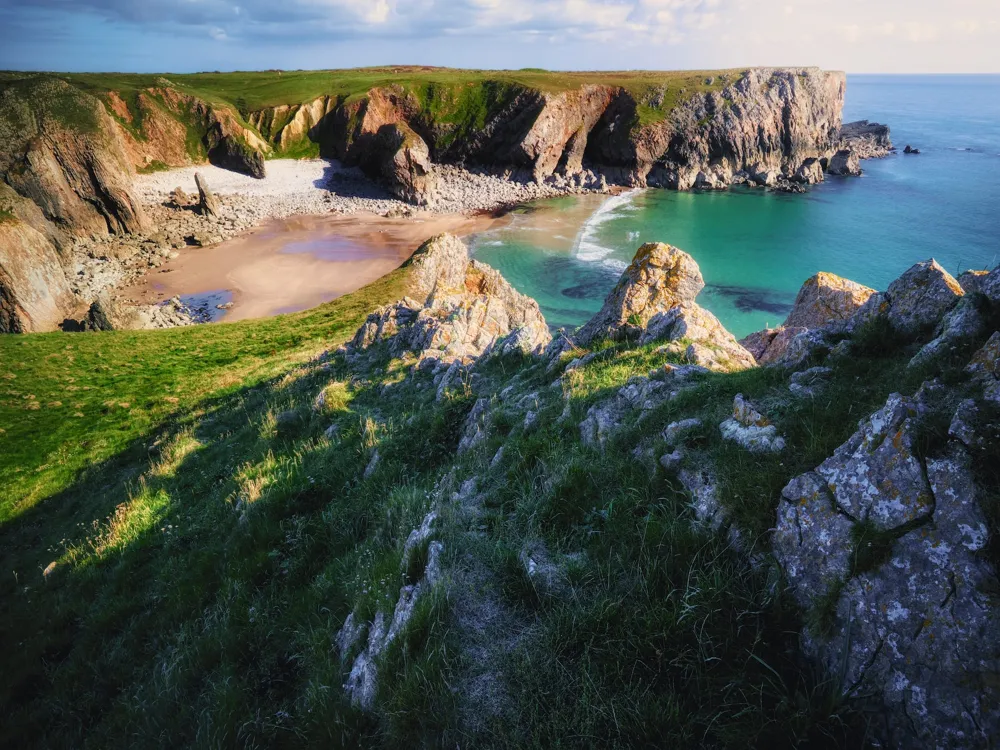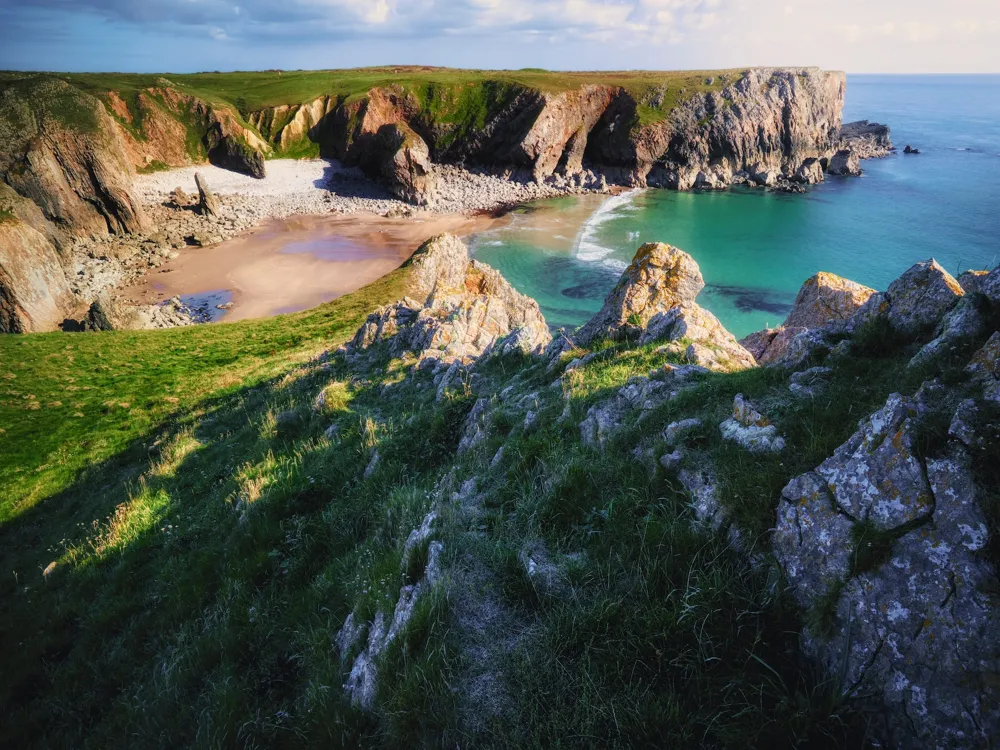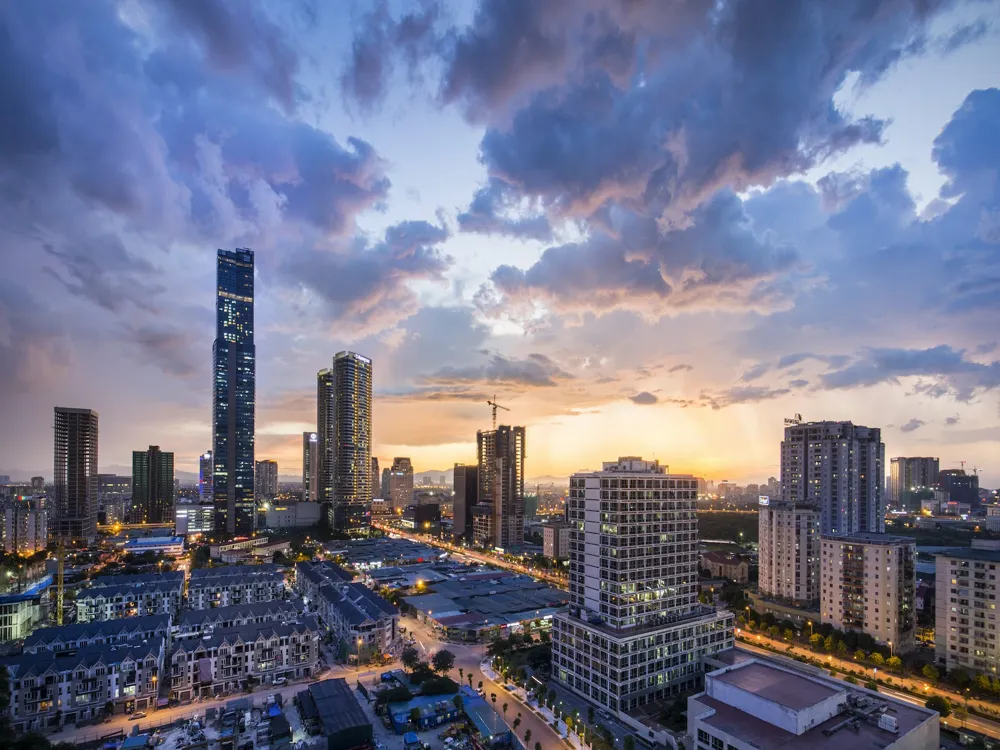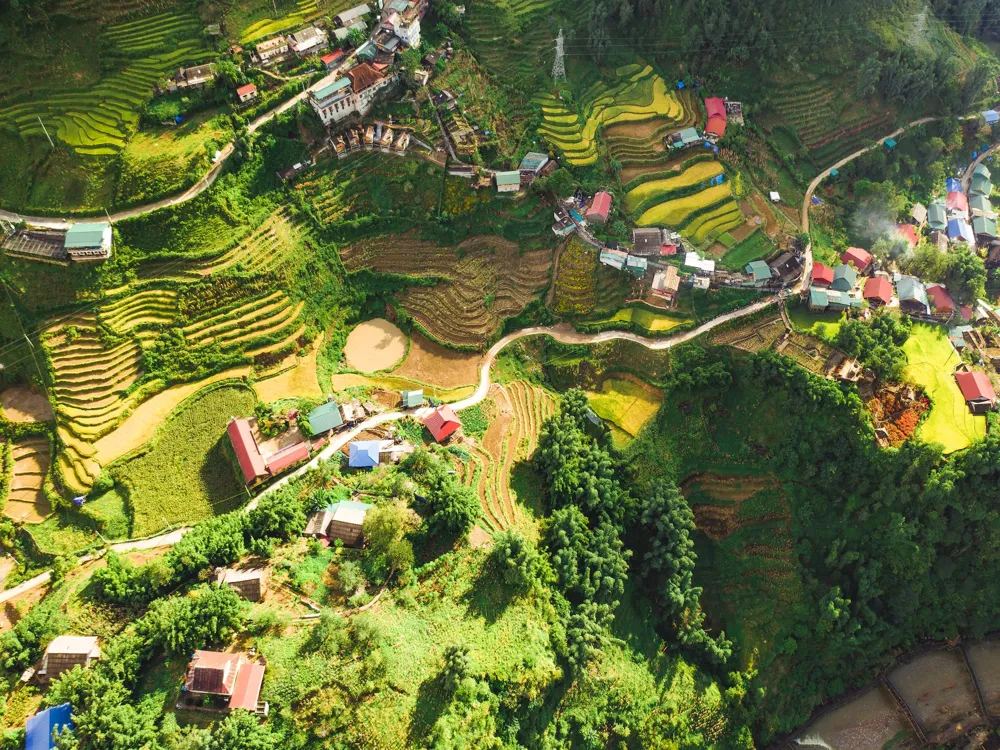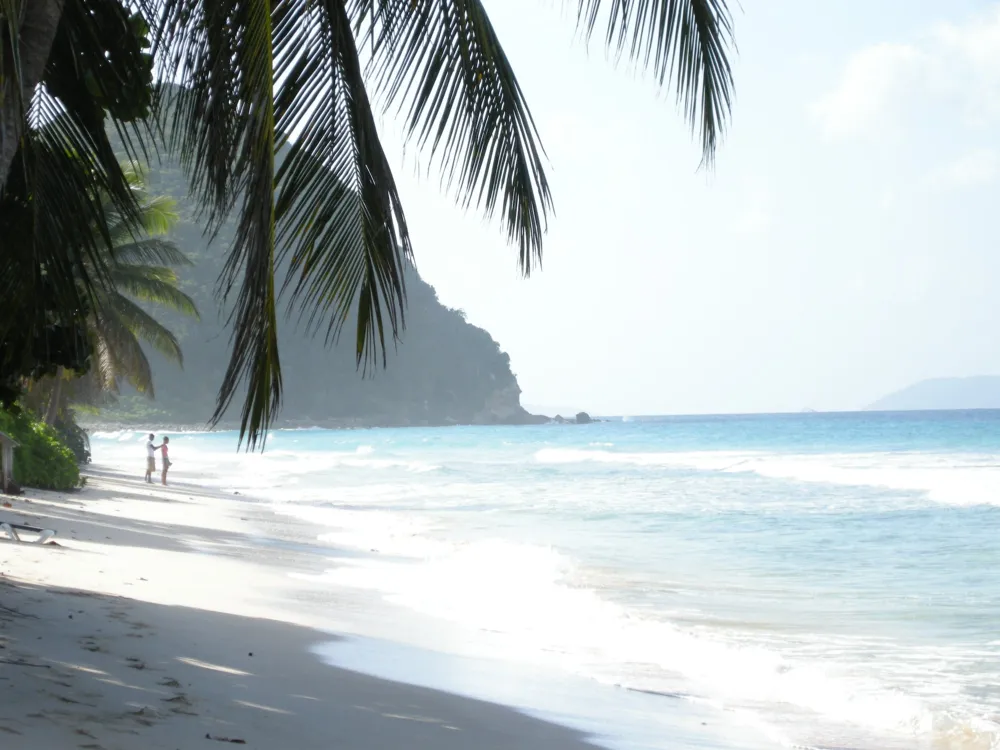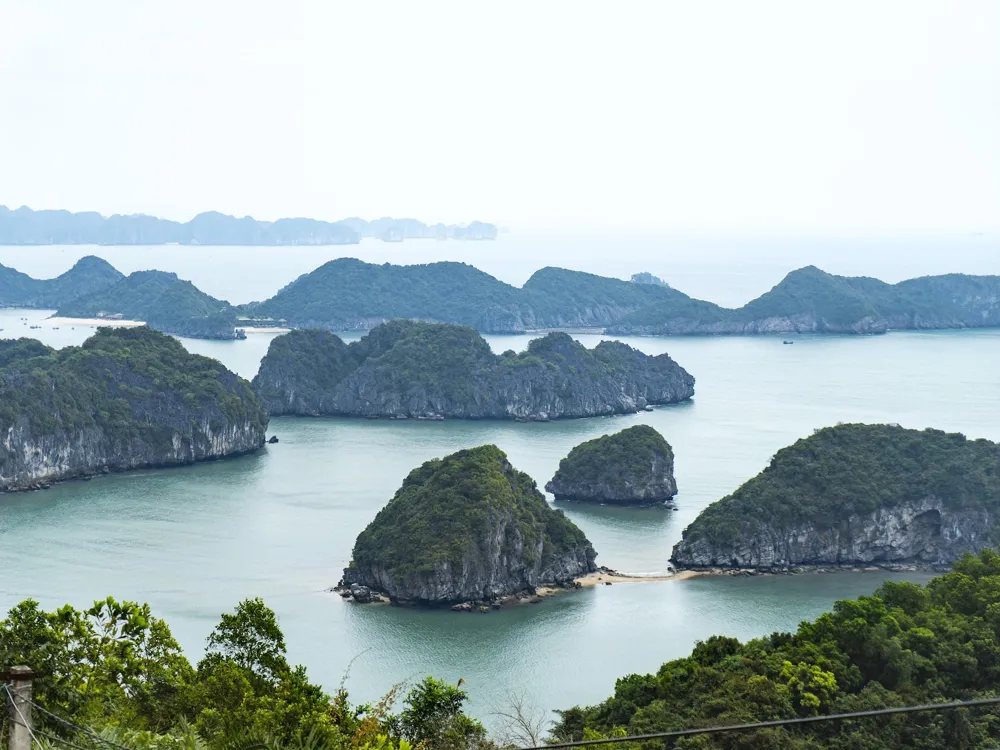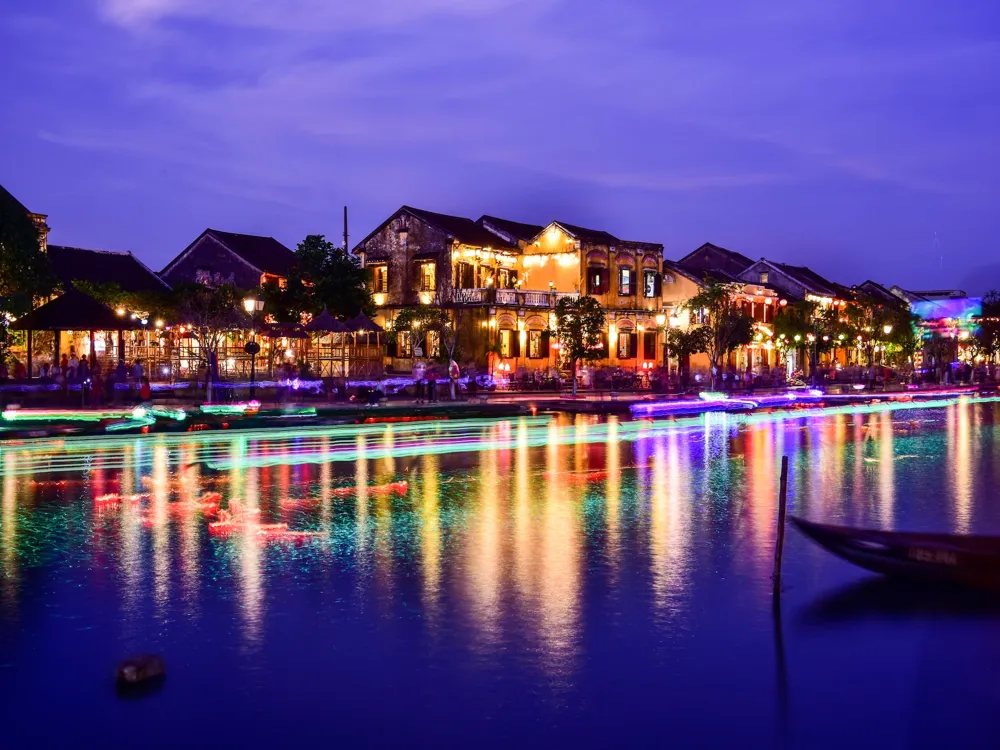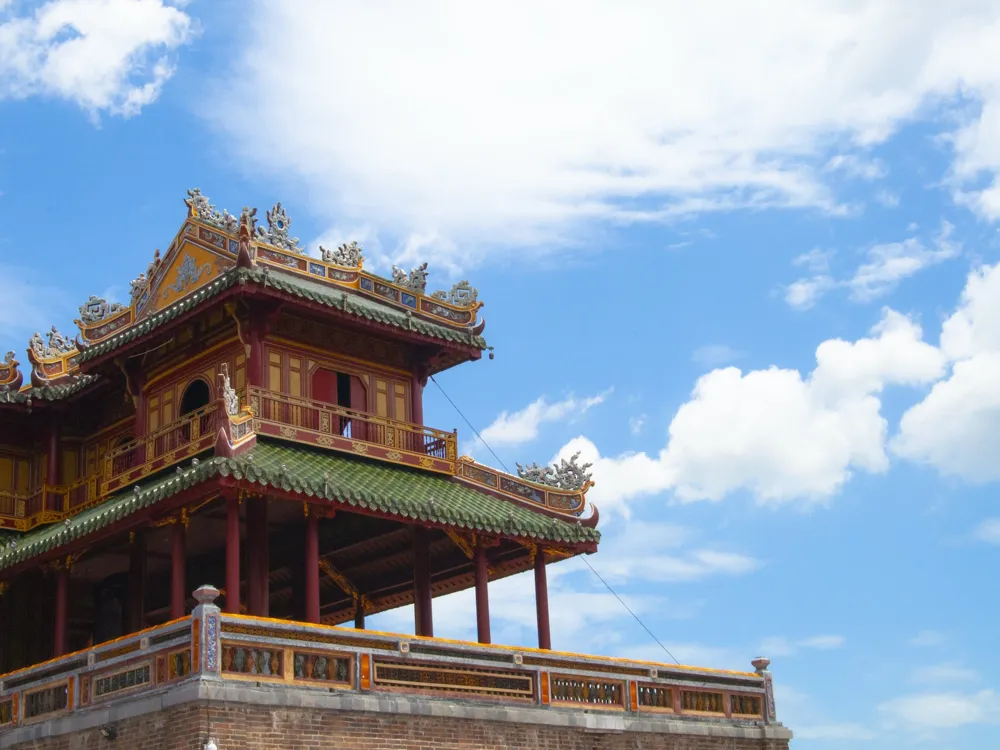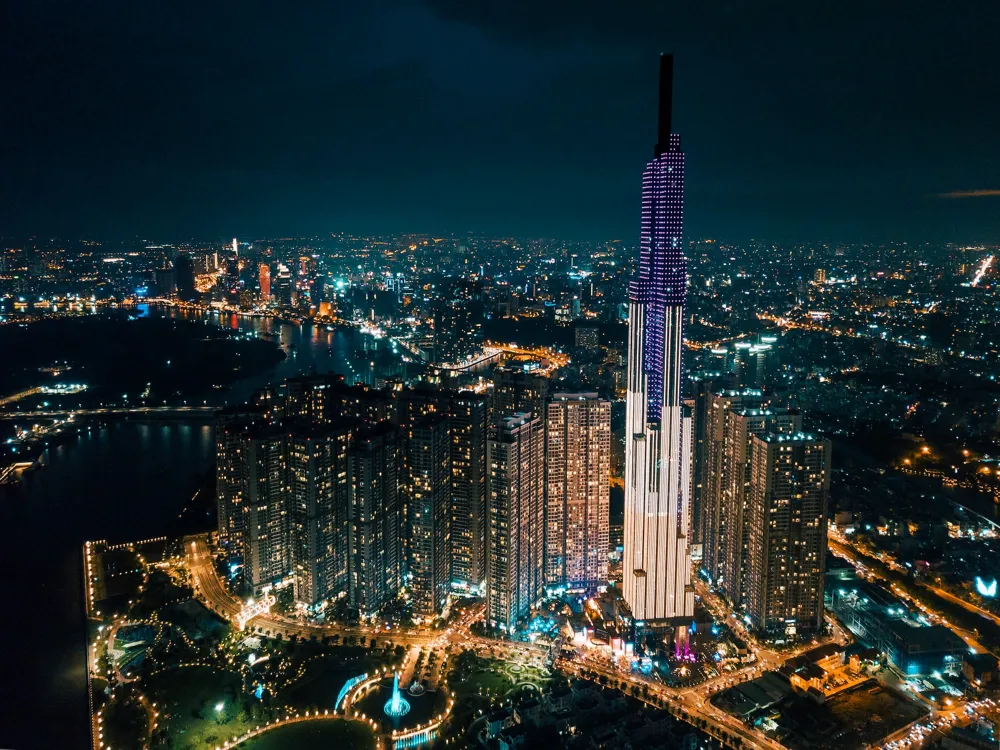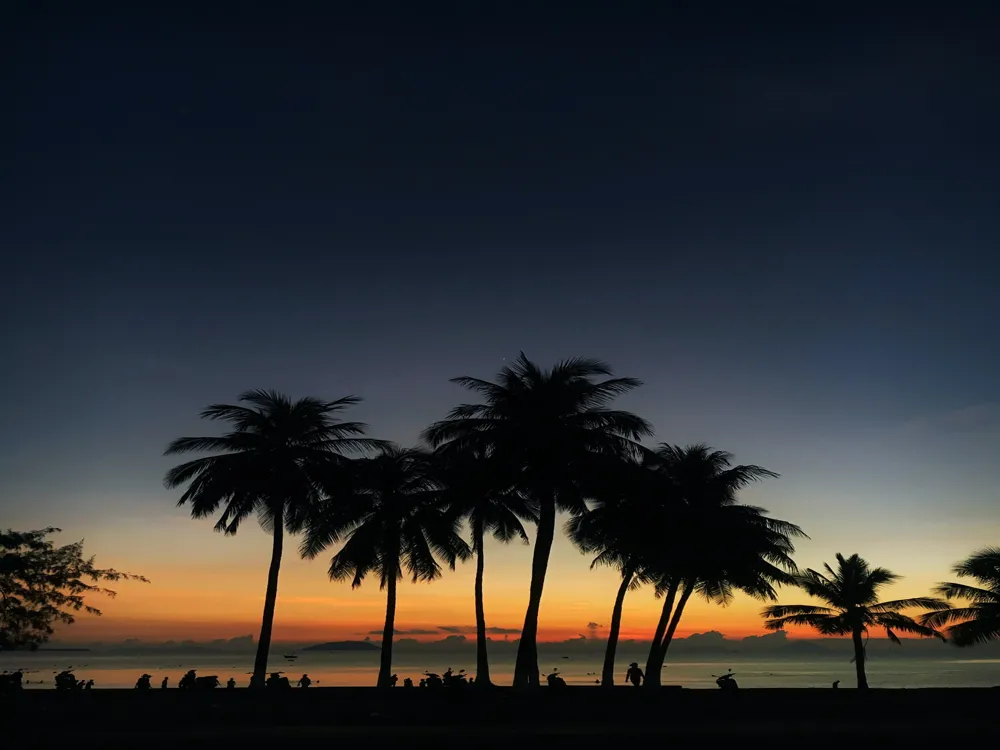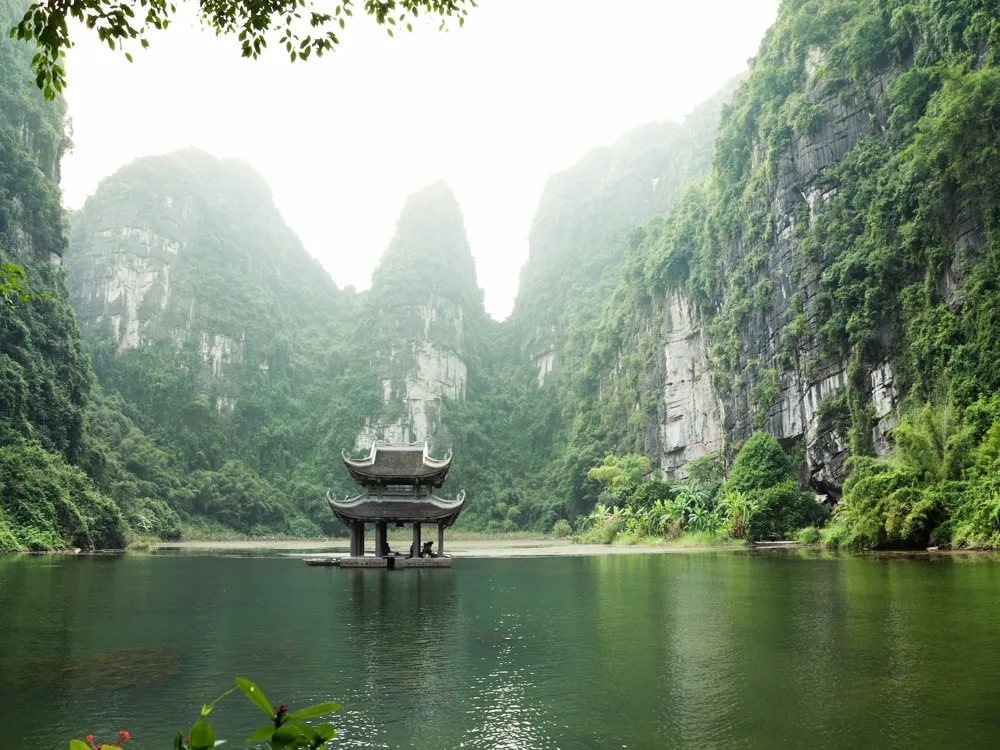Halong Bay, a magnificent natural wonder in northern Vietnam, is renowned for its emerald waters and thousands of towering limestone islands topped by rainforests. Often referred to as the 'Bay of Descending Dragons', this UNESCO World Heritage site offers an ethereal, otherworldly landscape that captivates every visitor. The bay covers an area of approximately 1,553 square kilometers and is home to about 1,600 limestone islands and islets, each with its own unique shape and size.
The formation of Halong Bay dates back to over 500 million years, encompassing different geological eras and climate changes. Its name, 'Halong,' translates to 'where the dragon descends into the sea,' and legend has it that the bay was created by a dragon who charged towards the coast, its tail gouging out valleys and crevasses. As the creature plunged into the sea, the area filled with water, leaving only the pinnacles visible.
Besides its breathtaking geological formations, Halong Bay is also a place of biodiversity. Its tropical, moist climate is home to various ecosystems, including coral reefs, freshwater swamp forests, dense mangrove forests, and small freshwater lakes on some of the larger islands. This diversity extends to its rich fauna, with many species of birds, reptiles, and mammals. The bay is not just a natural wonder but also a testament to the harmonious existence of complex ecosystems.
The architecture of Halong Bay is not about human-made structures but the artistry of nature itself. The bay's most distinctive feature is its myriad of limestone karsts and islets of various sizes and shapes. These formations have been shaped over millions of years by environmental conditions, presenting a natural architectural marvel. The beauty of these karsts is augmented by their diversity, with some rising majestically from the water and others forming intricate caves and grottoes that beg exploration.
Among the notable formations is the Dau Go Cave, known for its massive stalactites and stalagmites. The cave's interior seems like a meticulously designed architectural masterpiece, with nature sculpting each detail over centuries. Another significant formation is the Thien Cung Cave, which boasts an impressive array of stalactites and stalagmites, some resembling human figures, birds, and plants, creating a surreal, fairytale-like atmosphere.
The architecture of Halong Bay extends to the floating villages, like those found at Cua Van and Vung Vieng. These villages, floating on the emerald waters, are interconnected by wooden walkways and characterized by traditional Vietnamese architecture. The houses, made of wood and bamboo, sit atop floating platforms, showcasing a unique and sustainable lifestyle adapted to life on the water. The simplicity and functionality of these structures, harmoniously coexisting with the natural environment, reflect the ingenuity and resilience of the local communities.
The best time to visit Halong Bay is during spring (March to May) or autumn (September to November). During these months, the weather is typically pleasant with less likelihood of heavy rains, allowing for clearer views of the bay's stunning landscape.
Selecting the right cruise is crucial for your Halong Bay experience. Consider the duration of the cruise, the size of the boat, and the route it takes. Smaller boats offer a more intimate experience, while larger ones might have more amenities.
Pack light and bring essential items such as sunscreen, insect repellent, a hat, and comfortable shoes for walking and climbing. Also, don't forget your camera to capture the breathtaking scenery.
Halong Bay is accessible by various modes of transportation. The most common way to reach Halong Bay is from Hanoi, the capital city of Vietnam. It's about a 3 to 4-hour drive from Hanoi to the city of Halong, where most cruises and tours to Halong Bay commence. Visitors can choose to travel by bus, private car, or shuttle service. Additionally, for a faster and more scenic route, some opt for a seaplane from Hanoi to Halong, which offers stunning aerial views of the bay.
Overview of Halong Bay
Architecture of Halong Bay
Tips When Visiting Halong Bay
Best Time to Visit
Choosing a Cruise
What to Pack
How To Reach Halong Bay
Long Tien Pagoda
Halong Bay
₹ 15,260 onwards
View halong-bay Packages
Halong-bay Travel Packages
View All Packages For Halong-bay
Top Hotel Collections for Halong-bay

Private Pool

Luxury Hotels

5-Star Hotels

Pet Friendly
Top Hotels Near Halong-bay
Other Top Ranking Places In Halong-bay
View All Places To Visit In halong-bay
View halong-bay Packages
Halong-bay Travel Packages
View All Packages For Halong-bay
Top Hotel Collections for Halong-bay

Private Pool

Luxury Hotels

5-Star Hotels

Pet Friendly











